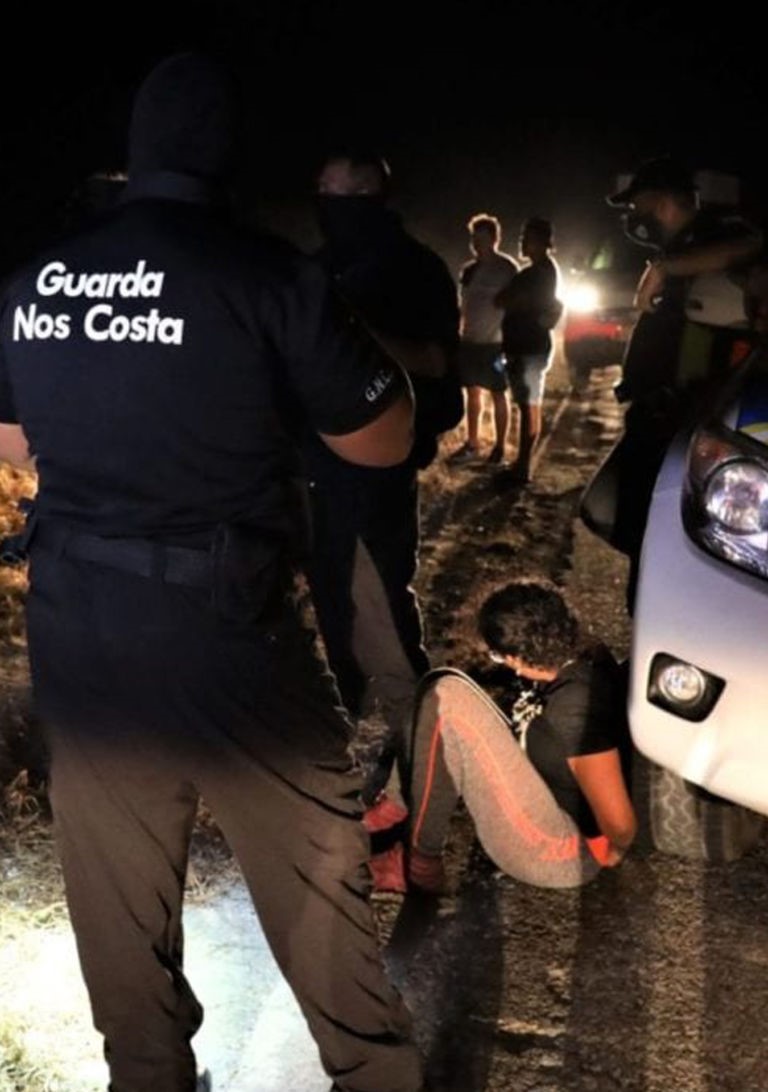what IS MIGRANT SMUGGLING?
Migrant smuggling is a crime against a country.
Migrant Smuggling is the facilitation of irregular entry into a country where the migrant is not a national or resident. The criminals behind this highly profitable business seize the opportunity created by the need or desire of people to enter a country without legal status.
People move to other countries for many reasons, but for undocumented migrants it is nearly always for a better life. This may be for themselves or for their families back home.
Migrant smuggling is a crime with high profits and a low risk of punishment for the criminals involved. Smugglers sell illegal and dangerous services to desperate people and are often part of a well-organized, multinational network.
Because these services are illegal, the criminals have tremendous power, while the migrants are left vulnerable. Some migrants are abused or die on the way to their destination, and many are abandoned en route without resources.
How does it happen?

In the case of Aruba, most migrants are smuggled across the border in boats. In some cases, migrants can be smuggled in via the airport with the use of false or falsified documents. Some people enter the country with a tourist visa, but overstay the permitted time and get an illegal status when the visa has expired.
Unlike human trafficking, people smuggling is characterized by the consent between customer and smuggler – a contractual agreement that typically terminates upon arrival in the destination location. Migrants often take out loans or hand over valuables to pay for their transport.
Key differences between human trafficking and migrant smuggling, are that in the case of human trafficking, we speak of a crime against the person: the victim’s right of movement and self-determination is violated. When it comes to migrant smuggling, it is a crime against the country: the migrant has entered into an agreement with the smuggler.
However, smuggling situations can descend into situations that can best be described as extreme human rights abuses, with smuggled migrants subject to threats, abuse, exploitation and torture, and sometimes even death at the hands of smugglers. Migrants involved in smuggling operations may also be victims of trafficking, when their transport is a part of the plan to exploit them in labor or sexual service as soon as they arrive.
With major and minor players spanning the globe, people smuggling poses a significant economic and legal impact on society, and solutions to the problem of people smuggling remain contested and under continued debate and development.
why does it happen?
Organized criminal groups turn to smuggling of migrants for the profit that it generates. Many individuals who consent to being smuggled are escaping poverty and hardship, seeking opportunities and better conditions abroad, or escaping natural disaster, conflict, or persecution. Others may be seeking asylum. The only generalization that can be made about smuggled individuals is that they are all on a quest for a better life.
For organized crime groups, smuggling people across borders is normally a “low-risk, high-profit” business. Smugglers benefit from typically weak detection capacities that result in the relatively slim risk of being detected, arrested and prosecuted.
There are four key differences between being smuggled and trafficked. :
- Consent – trafficking victims are those who have been subjected to coercive, deceptive, or abusive action by traffickers. These victims either never consented, or if they did, their initial consent is rendered meaningless by the subsequent actions of the traffickers.
- Exploitation – smuggling operations and interaction between smuggler and customer usually terminate upon payment and arrival at destination; trafficking victims, on the other hand, are often involved in a cycle of ongoing exploitation.
- Source of Profits – primary profits from smuggling operations are derived from transportation and facilitation of illegal entry or stay in another country, whereas trafficking operations profit largely from the exploitation of victims.
- Transnationality. Smuggling is always transnational. Trafficking exploitation can occur within a country or can involve border crossings.
who is involved?

Victims:
People who consent to migrant smuggling, they are motivated for a better life for themselves or their families. Generally, it takes place with the consent of the person or persons being smuggled, and common reasons for individuals seeking to be smuggled include employment and economic opportunity, personal and/or familial betterment, and escape from persecution, violence or conflict. Often, the chance of being employed, even if undocumented and cheaper wages, is better than the current situation they find themselves in.
Smugglers:
Profit-seeking criminals exploit the lack of legal opportunities available to migrants and take advantage of their situation by offering services at great cost.
While these may include services such as transport, they may also consist of document fraud. This can include the lending of stolen passports with photos that resemble the migrants, the falsification of travel or identity documents or the obtaining of genuine passports or visas on the basis of fraudulent supporting documents.
